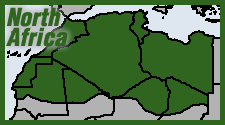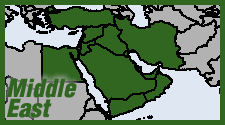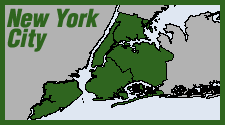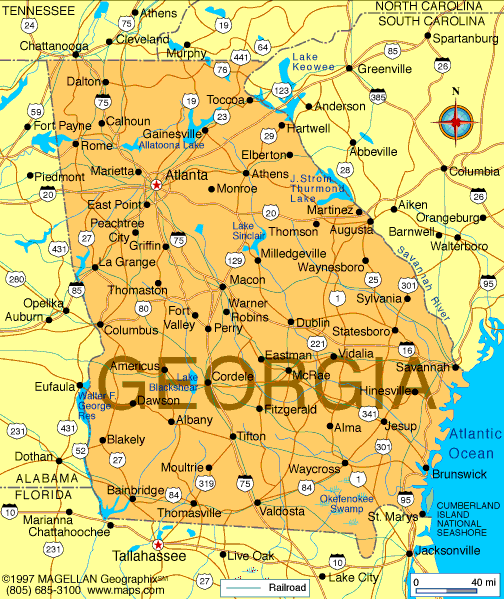 In what could turn out to be a landmark case, the US Court of Appeals for the Eleventh Circuit in Atlanta ruled June 11 that police must obtain a warrant to get a person's cell phone location history from the service provider. Police conducting a robbery investigation in Miami had obtained the location histories of four suspects after getting an order from a federal judge. But the standard for getting a so-called "D-order" is that it be "relevant and material" to an investigation—lower than the "probable cause" standard required for a warrant under the Fourth Amendment. The court found "that cell site location information is within the subscriber's reasonable expectation of privacy. The obtaining of that data without a warrant is a Fourth Amendment violation." Nathan Freed Wessler, an attorney for the American Civil Liberties Union (ACLU) who helped argue the case, hailed the ruling in United States v. Quartavious Davis as "a resounding defense of the Fourth Amendment's continuing vitality in the digital age."
In what could turn out to be a landmark case, the US Court of Appeals for the Eleventh Circuit in Atlanta ruled June 11 that police must obtain a warrant to get a person's cell phone location history from the service provider. Police conducting a robbery investigation in Miami had obtained the location histories of four suspects after getting an order from a federal judge. But the standard for getting a so-called "D-order" is that it be "relevant and material" to an investigation—lower than the "probable cause" standard required for a warrant under the Fourth Amendment. The court found "that cell site location information is within the subscriber's reasonable expectation of privacy. The obtaining of that data without a warrant is a Fourth Amendment violation." Nathan Freed Wessler, an attorney for the American Civil Liberties Union (ACLU) who helped argue the case, hailed the ruling in United States v. Quartavious Davis as "a resounding defense of the Fourth Amendment's continuing vitality in the digital age."

 Moroccan police have announced the seizure of nearly 30 tons of hashish in Casablanca, one of the largest hauls in the top cannabis-exporting country in years. According to the official MAP news agency, police raided a warehouse in the port city June 7, seizing 12 tons of chira, after the discovery a day earlier of 16.7 tons hidden inside a shipping container at the port, thought to be part of the same consignment. The container was apparently bound for Libya. Police arrested two men, including one said to be the leader of the smuggling ring. Judicial police chief Abdelhak Khayyam said an investigation has been launched into "a large-scale trafficking operation, sending the drug to an Arab country via Casablanca port."
Moroccan police have announced the seizure of nearly 30 tons of hashish in Casablanca, one of the largest hauls in the top cannabis-exporting country in years. According to the official MAP news agency, police raided a warehouse in the port city June 7, seizing 12 tons of chira, after the discovery a day earlier of 16.7 tons hidden inside a shipping container at the port, thought to be part of the same consignment. The container was apparently bound for Libya. Police arrested two men, including one said to be the leader of the smuggling ring. Judicial police chief Abdelhak Khayyam said an investigation has been launched into "a large-scale trafficking operation, sending the drug to an Arab country via Casablanca port." Authorities in Saudi Arabia have
Authorities in Saudi Arabia have  In a dramatic early morning raid June 4, some 400 NYPD cops wearing bullet-proof vests stormed the Manhattanville and Grant housing projects in Harlem, arresting scores in what was boasted as the largest gang case in New York City history. In what was dubbed Operation Crew Cut Initiative, police commissioner
In a dramatic early morning raid June 4, some 400 NYPD cops wearing bullet-proof vests stormed the Manhattanville and Grant housing projects in Harlem, arresting scores in what was boasted as the largest gang case in New York City history. In what was dubbed Operation Crew Cut Initiative, police commissioner  A Georgia family and state lawmakers are demanding a federal investigation into the case of a toddler severely injured by a flash grenade during a drug raid May 28. Bounkham Phonesavanh—19 months old, and nicknamed Bou Bou—remains in a medically induced coma at the Grady Memorial Hospital burn unit in Atlanta. Habersham County District Attorney Brian Rickman told AP his office is investigating to determine whether any officers will face criminal charges. Police said officers were searching for a potentially armed drug suspect at the home and did not know children were inside when they broke down the door and threw in a flash grenade. The grenade landed in the sleeping boy's playpen, according to both authorities and the Phonesavanh family.
A Georgia family and state lawmakers are demanding a federal investigation into the case of a toddler severely injured by a flash grenade during a drug raid May 28. Bounkham Phonesavanh—19 months old, and nicknamed Bou Bou—remains in a medically induced coma at the Grady Memorial Hospital burn unit in Atlanta. Habersham County District Attorney Brian Rickman told AP his office is investigating to determine whether any officers will face criminal charges. Police said officers were searching for a potentially armed drug suspect at the home and did not know children were inside when they broke down the door and threw in a flash grenade. The grenade landed in the sleeping boy's playpen, according to both authorities and the Phonesavanh family. University of Kentucky agronomy researchers on May 27 planted a small hemp plot at
University of Kentucky agronomy researchers on May 27 planted a small hemp plot at  In an unprecedented 219-189 floor vote late May 29, the House of Representatives approved the end of funding for Department of Justice (DoJ) enforcement in medical marijuana states. Advocates are hailing the vote as a major victory that signals a shift in the approach Congress is taking on this issue. The vote was on Amendment No. 25 to the Commerce, Justice & Science (CJS) appropriations bill. One hundred seventy Democrats and 49 Republicans voted in favor of the amendment. "This Congressional vote is a huge victory for patients," said Steph Sherer, executive director of Americans for Safe Access. "No longer will we have to look over our shoulder and worry when the next raid or indictment will prevent us from safely and legally accessing our medicine. This is a game-changer that paves the way for much more policy change to come."
In an unprecedented 219-189 floor vote late May 29, the House of Representatives approved the end of funding for Department of Justice (DoJ) enforcement in medical marijuana states. Advocates are hailing the vote as a major victory that signals a shift in the approach Congress is taking on this issue. The vote was on Amendment No. 25 to the Commerce, Justice & Science (CJS) appropriations bill. One hundred seventy Democrats and 49 Republicans voted in favor of the amendment. "This Congressional vote is a huge victory for patients," said Steph Sherer, executive director of Americans for Safe Access. "No longer will we have to look over our shoulder and worry when the next raid or indictment will prevent us from safely and legally accessing our medicine. This is a game-changer that paves the way for much more policy change to come." Gov.
Gov. 






Recent comments
2 weeks 1 day ago
2 weeks 1 day ago
5 weeks 2 days ago
6 weeks 1 day ago
10 weeks 1 day ago
14 weeks 2 hours ago
18 weeks 7 hours ago
18 weeks 5 days ago
28 weeks 5 days ago
32 weeks 6 days ago